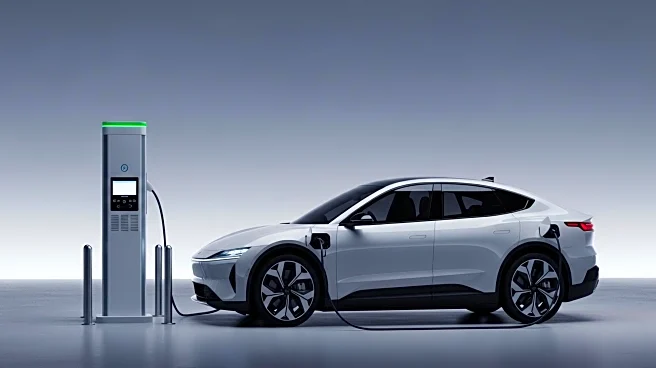What's Happening?
The U.S. automotive market is experiencing resilient new-vehicle sales in the third quarter, largely driven by a surge in electric vehicle (EV) interest. This increase comes as consumers rush to take advantage of the $7,500 federal tax credit before its expiration. General Motors, Honda, and Hyundai are among the automakers gaining momentum in the EV sector, according to industry analysts. The strong performance in EV sales is helping to offset challenges faced by the broader automotive market, including supply chain disruptions and economic uncertainties.
Why It's Important?
The surge in EV sales is crucial for the automotive industry as it signals a shift towards more sustainable transportation options. This trend is likely to influence automakers' strategies, encouraging further investment in EV technology and infrastructure. The federal tax credit has played a significant role in boosting consumer interest, highlighting the impact of government incentives on market dynamics. As EVs become more mainstream, traditional automakers may face increased competition from new entrants focused on electric mobility, potentially reshaping the industry's competitive landscape.
What's Next?
With the federal tax credit nearing its end, automakers and consumers alike are expected to make strategic decisions regarding EV purchases and production. Automakers may accelerate their EV rollout plans to capitalize on the current demand, while consumers might rush to purchase EVs before the credit expires. Additionally, policymakers could consider extending or modifying incentives to sustain the momentum in EV adoption. The industry's focus on EVs is likely to continue, with potential advancements in battery technology and charging infrastructure on the horizon.
Beyond the Headlines
The growing interest in EVs reflects broader societal shifts towards sustainability and environmental consciousness. As consumers become more aware of the environmental impact of traditional vehicles, the demand for cleaner alternatives is expected to rise. This shift could lead to significant changes in urban planning, energy consumption, and transportation policies, as cities and governments adapt to accommodate increased EV usage.









